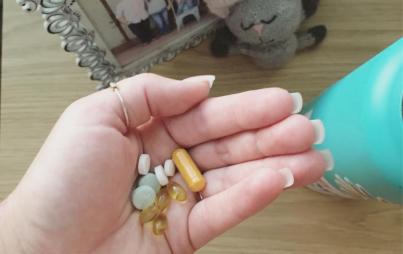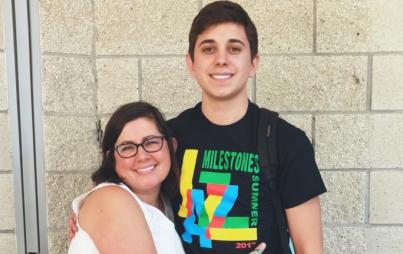
Photo by Naomi August on Unsplash
Suicide is a complex issue, one which can be caused by numerous factors: i.e., mental health issues, physical health issues, familial issues, and financial issues. They can all put you “at risk.” The matter is a public health crisis. More than 800,000 people die by suicide each year. How do I know so much about suicide? Because I have considered suicide. Because I have contemplated suicide, and because I have attempted suicide.
I survived. Twice.
I have also endured suicidal ideations most of my adult life, and this means that I — a happily married, hardworking, mother of two — have parented “through the darkness.” I have held my babies while wanting to die.
The first time I experienced suicidal thoughts as a parent was when my daughter was little. I was six weeks postpartum, my baby girl was fresh — the top of her head still smelled musty and sweet, with hints of baby powder and vanilla — and motherhood was new. I didn’t know what to do. I didn’t know what to think, and I was emotional. I was a sleep-deprived mess. I was also struggling with postpartum depression.
The world had lost all color. I felt hopeless, scared, and numb. The worst part about those early days were the feelings of failure.
I believed I was the world’s worst everything — woman, wife, writer, and mom.
And before long, this sense of inadequacy became something more profound. Something darker. I found myself wanting to throw my body into traffic. I wanted to jump off a bridge.
The thoughts didn’t stop. They didn’t go away, and three years later, I found myself in a similar headspace. I wrote a note. I made a plan, and I kissed my baby girl’s forehead. I said goodnight and goodbye.
You Might Also Like: I Have Compassion For Everyone Struggling With Depression Except Me
Of course, I am not proud of these things. They are the lowest moments of my life, but as someone who suffers from anxiety disorder and bipolar disorder — a disorder which includes severe bouts of depression — they are a very real part of my life. And while parenting is hard, parenting through suicidal thoughts is damn near impossible. It is overwhelming.
When you are suicidal, you are not yourself. You become fixated on getting out and getting away, on your own demise. Things that once made you happy bring you pain. Laughing hurts. Loving hurts. Breathing hurts, and instead of coloring with your daughter, you stare vacantly out the window.
You count pills instead of crayons, beads, buttons, or cars. You isolate. You pull up your blanket and close your curtains. You silence your phone and shut your doors, and instead of taking your littles on an afternoon bike ride, you take a nap. Peppa Pig raises your peanuts. That British bastard takes over your life.
Laundry piles up. Dishes sit in the sick, unsoaked and unwashed, and dinner never makes its way to the table. Instead, you give your son a bowl of dry Cheerios while your daughter raids the cabinets, snacking on chips, crackers, and a chocolate bar. And then, when all is said and done, the guilt kicks in and reminds you your friends and family would be better off without you.
You think, the world would be better off without you.
Make no mistake: This isn’t true. It is part of a vicious cycle perpetuated by society and exacerbated by mental illness, but that doesn’t make things any easier. That doesn’t make things any better and, when I am suicidal, that doesn’t dull the pain. Knowledge and logic go out the window.
The good news is that I have never acted on these thoughts, at least not in recent years. (It has been many, many years.) And I attribute that to the fact that I have an excellent psychiatrist, a great psychologist, and a loving and supportive family. My “network” is strong. But I have lost countless days to my illness.
There are many weeks, months, and moments I cannot get back.
But still, I am thankful. I am lucky. I am #blessed, because while my suicidal thoughts are not ideal — while they negatively affect the way I love, the way I parent, and the way I work — thanks to them I am more mindful of my emotions (and my children’s). I am understanding, empathetic, patient, and kind. Thanks to them, I am humble. I have learned how and when to ask for help, and thanks to them I am more appreciative of the little things: the good moments, the happy moments, the sweet, motherly moments I experience when I am healthy. When I am present. When I am alive.
If you or someone you know is having suicidal thoughts, please call the National Suicide Prevention Lifeline at 1-800-273-8255, visit SuicidePreventionLifeline.org or text “START” to 741-741 to immediately speak to a trained counselor at Crisis Text Line.








